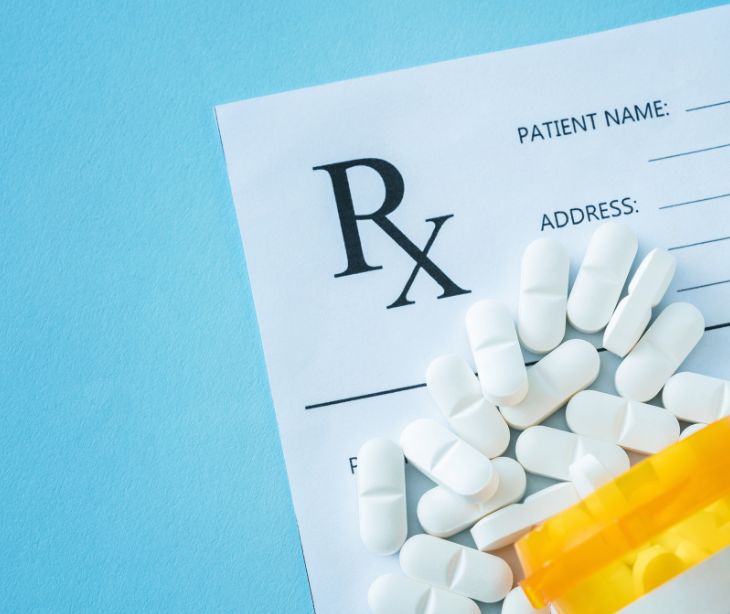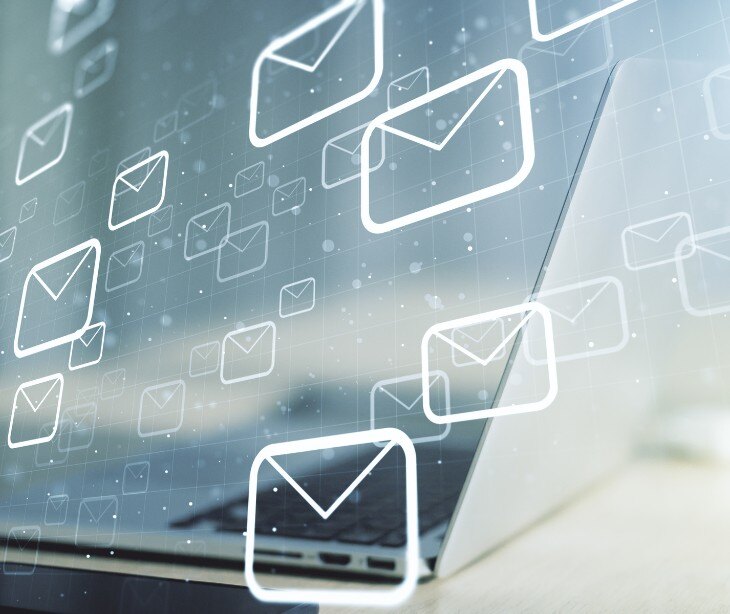
Covered entities can be HIPAA compliant when emailing about prescriptions by implementing safeguards like using encrypted email, having patient consent, and signing a BAA. Prescription information is considered protected health information (PHI), so practices should handle this information carefully and securely.
Prescription renewals and follow-ups in healthcare
About 66% of U.S. adults take prescription drugs; however, only half of them adhere to their treatment. One study found that of the 600,000 patients, 39% forgot to take their meds, 20% did not renew scripts on time, and 10% put off refills, resulting in multiple missed doses. Regular monitoring of patients and medication management can help promote treatment adherence.
During the prescription renewal process, practitioners can make sure patients receive their medicine on time while also assessing the treatment’s effectiveness. Follow-ups provide opportunities for healthcare professionals to monitor patients’ health, adjust medications as needed, and discuss any side effects or concerns.
HIPAA and prescription renewals and follow-ups
PHI encompasses any health information that can identify a patient, including names, diagnoses, medications, and treatment details. As prescription renewals and follow-ups often involve discussing this sensitive information, HIPAA regulations apply to protect patients’ rights and privacy.
The HIPAA Privacy Rule requires that healthcare providers keep PHI safe and only allow authorized individuals to access it.
According to the HHS, “The Privacy Rule allows covered health care providers to communicate electronically, such as through e-mail, with their patients, provided they apply reasonable safeguards when doing so." When healthcare providers use email for prescription-related communication, they must stick to these regulations.
Risks of non-compliant email communication
Non-compliant email communication can lead to unauthorized access, interception, or exposure of sensitive health information. The repercussions of non-compliance can be severe, including hefty fines and legal penalties. More importantly, breaches can lead to the loss of patient trust, which can be difficult to regain.
HIPAA compliant email communication best practices
Use of encryption
Encrypting emails containing PHI helps ensure compliance. Encryption secures email messages during transmission and when stored, preventing unauthorized access. Healthcare providers should consider using encryption tools and services that meet HIPAA standards.
Read more: What happens to your data when it is encrypted?
Business associate agreements (BAAs)
If a healthcare provider uses a third-party email service, they must ensure that the provider is HIPAA compliant and sign a BAA. This agreement outlines the responsibilities of the email service provider in protecting PHI.
Related: The consequences of not having a BAA with an email service provider
Patient consent for email communication
Healthcare providers must inform patients about the risks associated with sharing PHI through this medium before communicating via email. Obtaining consent from patients helps ensure they understand these risks and agree to email communication.
Technical safeguards for secure email communication
Secure platforms and email services
Choosing a HIPAA compliant email provider like Paubox ensures that PHI remains secure. Providers should look for email services that offer encryption, audit trails, and access controls to enhance security.
Implementing strong access controls
Strong access controls, including password protection and multi-factor authentication (MFA), help safeguard email accounts. Access to email accounts should be restricted to authorized personnel only.
Common mistakes to avoid
- Sending emails without encryption: Failing to encrypt emails containing PHI can lead to severe privacy breaches.
- Forgetting to obtain patient consent: Neglecting to secure documented consent for email communication can expose healthcare providers to compliance risks.
- Sharing too much information in emails: Over-sharing information can violate the minimum necessary standard. Providers should be vigilant about limiting the information shared to what is essential for communication.
FAQs
Can patients opt out of email communication for prescription renewals and follow-ups?
Yes, patients have the right to opt out of email communication at any time, and healthcare providers must honor this request by offering alternative, secure communication methods like HIPAA compliant text messaging.
How should providers handle email retention for prescription renewals and follow-ups?
Providers should securely store emails related to prescription renewals and follow-ups as part of the patient’s medical record, per the HIPAA retention policies, ensuring they remain accessible for future reference.
Are automated prescription renewal reminders via email HIPAA compliant?
Automated email reminders for prescription renewals can be HIPAA compliant if the emails are encrypted, limited to the minimum necessary information, and sent with the patient's prior consent.
Subscribe to Paubox Weekly
Every Friday we'll bring you the most important news from Paubox. Our aim is to make you smarter, faster.




